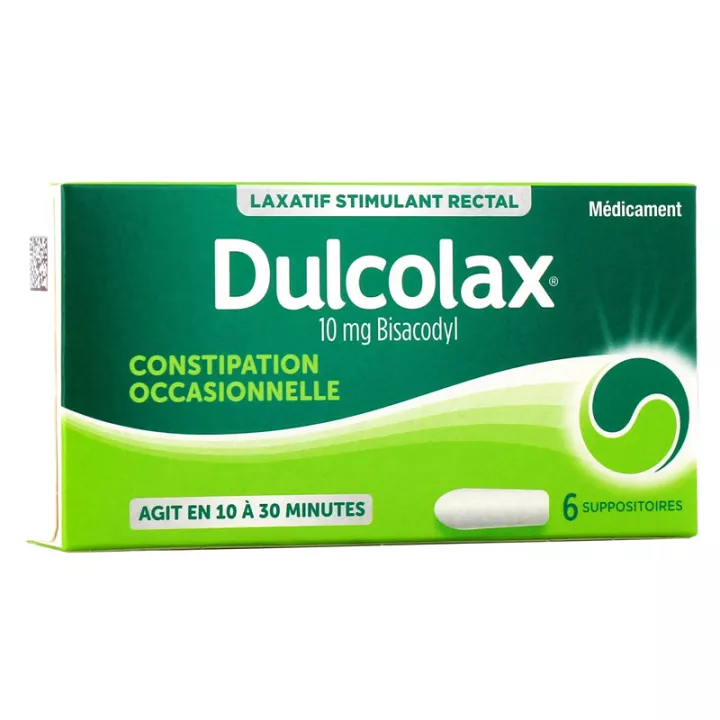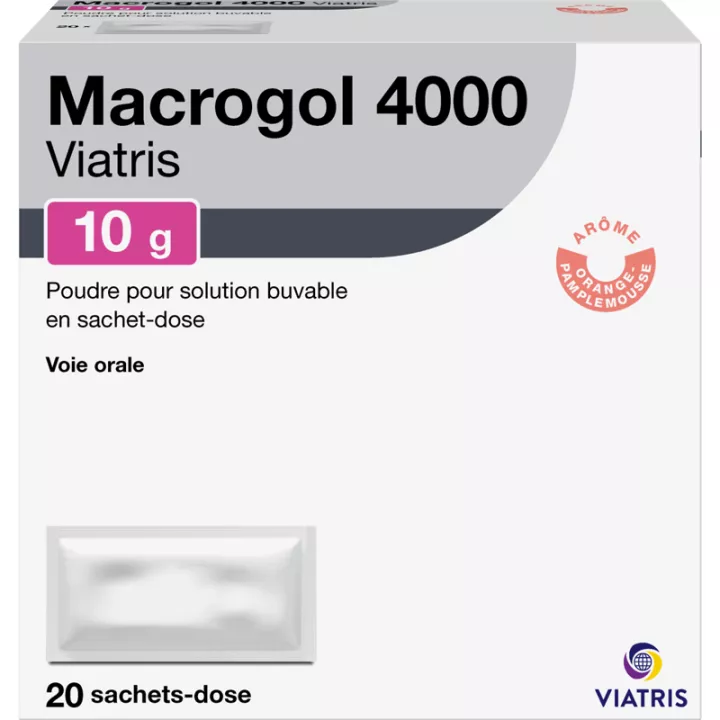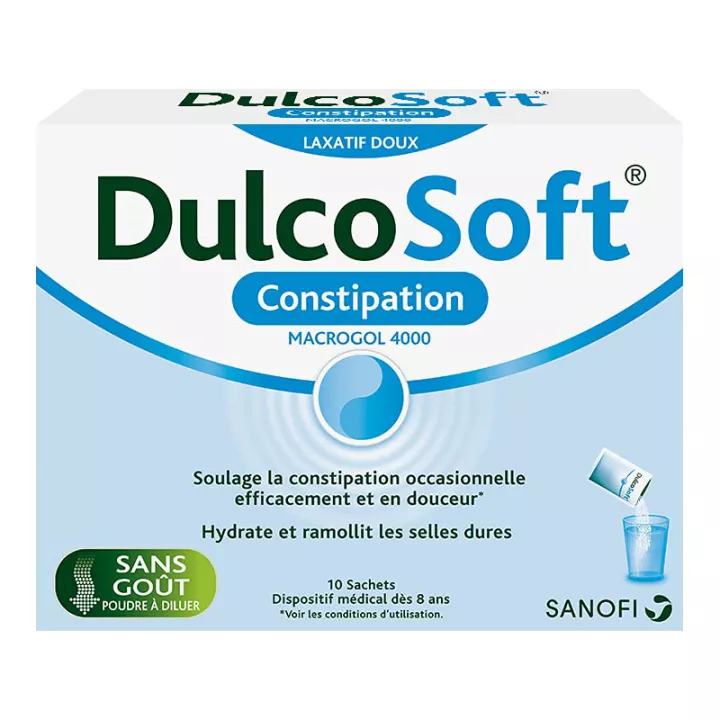NOTICE
ANSM - Updated on: 21/04/2017
Name of the medicinal product
DUPHALAC 10 g / 15 ml, oral solution in sachet
lactulose
framed
Please read this leaflet carefully before you start taking this medicine because it contains important information for you.
You should always take this medication exactly as prescribed in this leaflet or by your doctor or pharmacist.
· Keep this leaflet. You might need to read it again.
· Ask your pharmacist for advice or information.
· If you experience any of the side effects, talk to your doctor or pharmacist. This also applies to any side effects not mentioned in this leaflet. See section 4.
· You should talk to your doctor if you do not feel better or feel less well after several days.
What is in this leaflet?
1. What is DUPHALAC 10 g / 15 ml, oral solution in sachets and in which cases it is used?
2. What should I know before taking DUPHALAC 10 g / 15 ml, oral solution in sachet?
3. How to take DUPHALAC 10 g / 15 ml, oral solution in sachet?
4. What are the possible side effects?
5. How to store DUPHALAC 10 g / 15 ml, oral solution in sachet?
6. Package contents and other information.
1. WHAT IS DUPHALAC 10 g / 15 ml, oral solution in sachet AND WHAT IS IT?
Pharmacotherapeutic group - ATC code:
DUPHALAC contains a laxative called lactulose. It makes the stools soft and easier to remove, attracting water into the intestine. It is not absorbed into your body.
· DUPHALAC is used to treat constipation (uncommon, hard and dry stools) by making loose stools.
· DUPHALAC is used in the treatment of systemic hepatic encephalopathy (a liver disease causing difficulty in thinking, confusion, tremors, decreased level of consciousness that can go as far as coma).
2. BEFORE YOU TAKE DUPHALAC 10 g / 15 ml, oral solution in sachet?
If your doctor has told you about an intolerance to some sugars, contact your doctor before taking this medicine.
Never take DUPHALAC 10 g / 15 ml, oral solution in sachet:
· if you are allergic to the active substance or to any of the other ingredients of this medication mentioned in section 6;
· in the case of progressive or inflammatory bowel disease or bowel disease such as ulcerative colitis, Crohn's disease;
· in the case of intestinal occlusion;
· in case of digestive perforation or suspicion of perforation;
· in case of abdominal pain (stomach pain) of undetermined cause.
Warnings and Precautions
Talk to your doctor or pharmacist before taking DUPHALAC 10 g / 15 ml, oral solution in sachet.
IN THE CONTEXT OF CONSTIPATION NO LONGER USE (OVER 8 DAYS) WITHOUT MEDICAL ADVICE.
Occasional constipation
It may be related to a recent change in lifestyle (eg travel). The drug may be an aid in short treatment. Any recent constipation unexplained by the change in lifestyle, constipation accompanied by pain, fever, swelling of the abdomen must make seek the opinion of the doctor.
Chronic constipation (long-term constipation)
It can be linked to two causes:
· a bowel disease that requires a physician to take care of;
· or an imbalance in intestinal function due to dietary habits and lifestyle.
Treatment includes:
· increased dietary intakes of vegetable products (green vegetables, raw vegetables, wholemeal bread, fruits, etc.);
· increased consumption of water and fruit juices;
· an increase in physical activities (sports, walking, etc.);
· rehabilitation of the defecation reflex;
· sometimes, adding sound to the diet.
Special cases of the child
In children the treatment of constipation is based on lifestyle and dietary measures: in particular the use of the right amount of water with infant milk powders, a diet rich in vegetable products, addition of Juice.
In infants and children, the prescription of DUPHALAC should be exceptional because it can impede the normal functioning of the exemption reflex.
Precautions for use
Please consult your doctor before taking DUPHALAC if you are suffering from medical conditions or diseases, in particular:
· if you suffer:
o galactose intolerance, galactosemia,
o of a syndrome of malabsorption of glucose or galactose (rare hereditary diseases),
o of a lactase deficiency of Lapp,
o fructose intolerance (rare hereditary disease),
· if you are diabetic.
The dosage usually used in the treatment of constipation is not likely to affect diabetic patients.
If you are diabetic and you are being treated for hepatic encephalopathy, the dose of DUPHALAC will be higher. This high dose contains a greater amount of sugar. Therefore, it may be necessary to adjust the dose of your antidiabetic medication.
Chronic use at an unsuitable dose (resulting in more than 2 to 3 loose stools per day) or misuse can result in diarrhea and electrolyte balance disorders.
If you have a tendency to develop electrolyte disorders (eg in patients with renal or hepatic impairment, simultaneous use of diuretics), talk to your doctor or pharmacist before taking DUPHALAC.
You should drink a sufficient amount of fluid (about 1.5 to 2 liters per day, or 6 to 8 glasses) during treatment with laxatives.
If you are taking DUPHALAC for several days without improving your condition or if the symptoms worsen, consult your doctor.
Children and Youth
Not applicable.
Other medicines and DUPHALAC 10 g / 15 ml, oral solution in sachet
Inform your doctor or pharmacist if you are taking, have recently taken or may take any other medicines.
DUPHALAC 10 g / 15 ml, oral solution in sachet with food and beverages
DUPHALAC may be taken with or without food. There is no restriction on what you can eat or drink.
Pregnancy and breast feeding
DUPHALAC can be used during pregnancy and lactation.
If you are pregnant or breastfeeding, think you may be pregnant or plan a pregnancy, ask your doctor for advice or pharmacist before taking this medication.
Sport
Not applicable.
Driving and using machines
DUPHALAC has no or negligible influence on the ability to drive or use machines.
DUPHALAC 10 g / 15 ml, oral solution in sachet contains some sugars
DUPHALAC may contain small amounts of milk sugar (lactose), galactose, epilactose or fructose (see section Precautions for use).
3. HOW TO TAKE DUPHALAC 10 g / 15 ml, oral solution in sachet?
Always take this medication exactly as prescribed by your doctor or pharmacist. Check with your doctor or pharmacist if in doubt.
Dosage
Constipation:
This medication can be given once a day, for example at breakfast or two times a day.
Depending on your response to treatment, the initial dose can be adjusted to reach the maintenance dose. Several days (2 to 3) may be required before treatment takes place.
It is on average:
Adults and adolescents:
· Attack treatment: 1 to 3 sachets per day.
· Maintenance treatment: 1 to 2 sachets per day.
Children from 7 to 14 years:
· Attack treatment: 1 sachet per day.
If diarrhea occurs, decrease dosage.
For appropriate dosage in infants and children up to 7 years of age, DUPHALAC vial should be used.
Use in children and adolescents
In infants and children, the prescription of DUPHALAC should be exceptional because it can impede the normal functioning of the exemption reflex.
Do not give DUPHALAC to children (<14 years of age) without consulting a doctor for a prescription and without close supervision.
Hepatic encephalopathy
In all cases, the ideal dose is that which leads to two loose stools per day.
Use in adults: the average dosage is 1 to 2 sachets 3 times a day.
Use in children and adolescents: No data are available for the treatment of children (newborns up to 18 years of age) with hepatic encephalopathy.
Administration mode
Oral use.
Take the doses every day, at the same time.
The corner of the DUPHALAC sachet must be torn and the contents taken immediately. Swallow the drug quickly, without keeping it in your mouth.
DUPHALAC can be taken pure or diluted in a drink.
Duration of the treatment
The duration of treatment varies according to the symptomatology.
If you take more DUPHALAC 10 g / 15 ml, oral solution in sachet you should not have:
In case of overdose, diarrhea or abdominal pain may occur.
If you take more DUPHALAC than you should, consult your doctor or pharmacist.
If you forget to take DUPHALAC 10 g / 15 ml, oral solution in sachet:
If you forget to take a dose of DUPHALAC, do not worry. Take the next dose at the usual time. Do not take a double dose to make up for a missed dose.
If you stop taking DUPHALAC 10 g / 15 ml, oral solution in sachet:
Not applicable.
If you have any further questions on the use of this medication, ask your doctor or pharmacist.
4. WHAT ARE POSSIBLE SIDE EFFECTS?
Like all medicines, this medicine may cause side effects, although not everybody gets them.
The following adverse reactions have been reported:
Very common (affect more than 1 in 10 people using this drug)
· Diarrhea.
Common (affects up to 1 in 10 people using this drug)
· Flatulence (bloating).
· Nausea.
· Vomiting.
· Abdominal pain.
Uncommon (affecting up to 1 in 100 people using this medication)
· Electrolytic imbalance caused by diarrhea.
Bloating may occur at the beginning of treatment, usually they stop after a few days.
When doses above the recommended dosage are used, abdominal pain and diarrhea may occur.
If high doses are given for a prolonged period (usually in case of liver encephalopathy), an electrolyte imbalance may occur due to diarrhea.
Declaration of side effects
If you experience any side effects, talk to your doctor or pharmacist. This also applies to any side effects not mentioned in this leaflet. You can also report adverse reactions directly via the national reporting system: National Agency for the Safety of Medicines and Health Products (ANSM) and network of Regional Centers of Pharmacovigilance - Website: www.ansm.sante.fr
By reporting adverse reactions, you are helping to provide more information about the safety of the drug.
5. HOW TO STORE DUPHALAC 10 g / 15 ml, oral solution in sachet?
Keep this medicine out of the reach and sight of children.
Do not use this medicine after the expiry date which is stated on the carton after EXP . The expiry date refers to the last day of that month.
Store at a temperature not exceeding 25 ° C.
Any partially used sachet should be discarded.
Do not throw any medicines into drains or rubbish. Ask your pharmacist to remove any medications you are no longer using. These measures will help protect the environment.
6. PACKAGE CONTENTS AND OTHER INFORMATION
What DUPHALAC contains 10 g / 15 ml, oral solution in sachet
· The active substance is:
Lactulose ............................................................................................................... 10 g
In the form of liquid lactulose.
For a bag of 15 ml.
· The other components are: not applicable.
What is DUPHALAC 10 g / 15 ml, oral solution in sachet and contents of the pack
This medication is in the form of a colorless to yellowish, viscous, clear liquid solution in a 15 ml (polyester / aluminum / polyethylene) sachet. This medicine is available in packs of 20 or 400.
Not all pack sizes may be marketed.
Marketing Authorization Holder
MYLAN MEDICAL SAS
42, RUE ROUGET DE LISLE
92150 SURESNES
Marketing Authorization Operator
MYLAN MEDICAL sas
42, RUE ROUGET DE LISLE
92150 SURESNES
Maker
ABBOTT BIOLOGICALS BV
VEERWEG 12
8121 AA OLST
NETHERLANDS
Names of the medicinal product in the Member States of the European Economic Area
Not applicable.
The last date on which this leaflet was revised is:
[to be completed later by the holder]
Other
Not applicable.
Detailed information on this medicine is available on the ANSM website (France).












